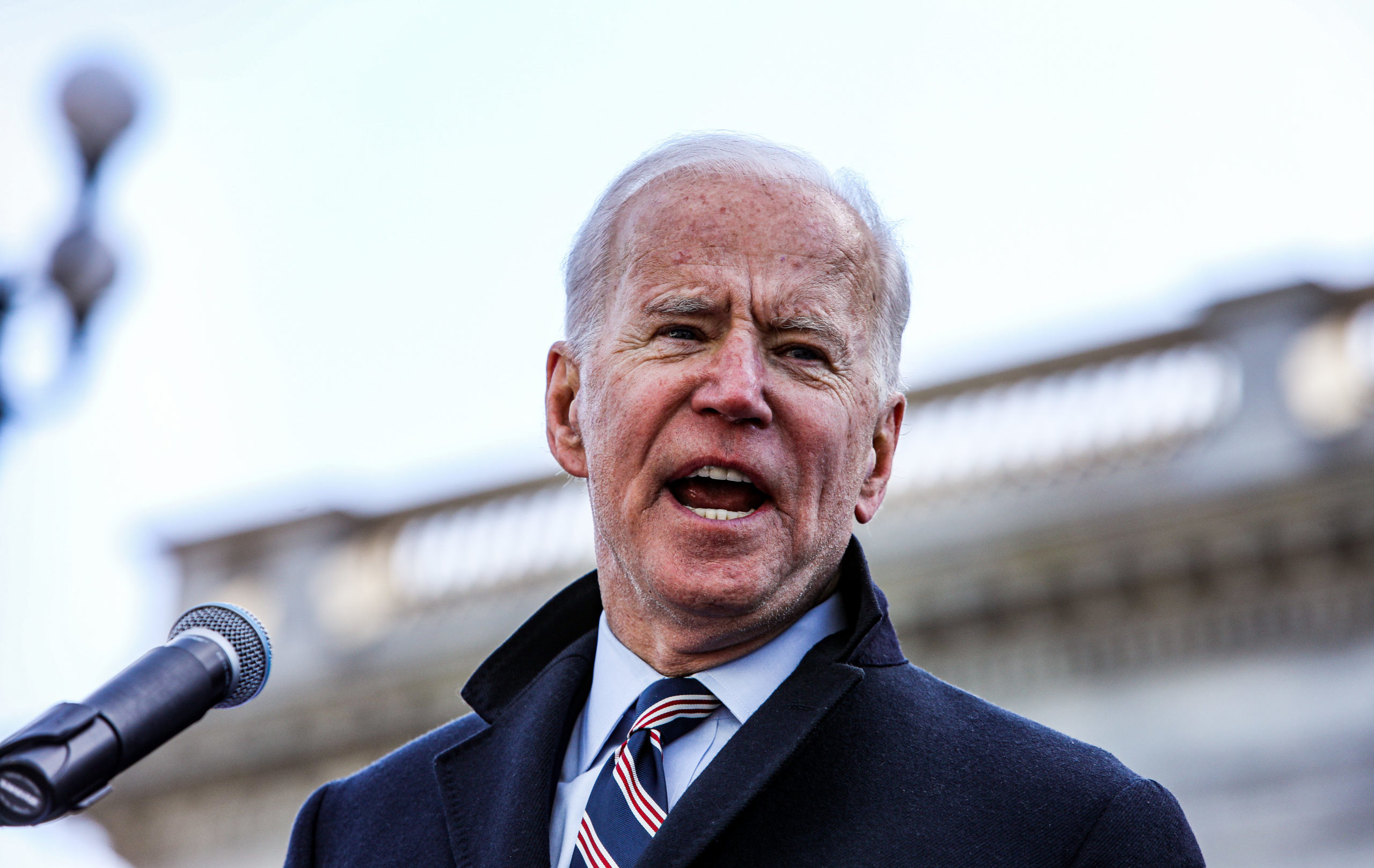Joe Biden's Trail of Broken Promises
Biden hasn’t lived up to his campaign promises.

In his March 1 State of the Union Address, President Biden said, “let me be clear, our forces are not engaged and will not engage in the conflict with Russian forces in Ukraine.” He had made this promise many times: there would be no US boots on the ground in Ukraine.
Three months later, on June 25, the New York Times reported that “C.I.A. personnel have continued to operate in the country secretly, mostly in the capital, Kyiv, directing much of the vast amounts of intelligence the United States is sharing with Ukrainian forces.” It added that other NATO countries, including the U.K., France, Canada, and Lithuania, have commandos operating in Ukraine.
That revelation gave the lie to Biden’s promise that the U.S. “will not deploy American troops to Ukraine.”
That was not the first broken promise. Biden promised that he would be no more than a sturdy “bridge,” an experienced statesman who would calmly transition America onto safe shores after the unstable Trump presidency. Instead he has steered the U.S. into the turbulent waters of a new cold war with China and Russia. It is that stormy world, and not the calm, uneventful bridge, that will be Biden’s legacy.
In his first address to the U.N. General Assembly, Biden promised the world that he was "opening a new era of relentless diplomacy." But his has been an era of threats, sanctions, snubbing talks, and refusing diplomacy. Biden’s State Department and his chief diplomat have been in what should be the impossible position of discouraging diplomacy where it matters most.
While campaigning, Biden promised a quick return to the JCPOA Iran nuclear agreement. He said that Trump "recklessly tossed away a policy that was working to keep America safe and replaced it with one that has worsened the threat." He promised to "offer Tehran a credible path back to diplomacy."
But when, after inexplicable delays, it came time to act on the promise to return to the JCPOA, Biden refused to promise an end to sanctions—the flesh of the agreement—and refused to promise that the U.S. would not break the deal again even for the duration of Biden’s term—the soul of any agreement.
Biden promised that he would correct America’s relationship with Saudi Arabia. He promised to shun them, and promised that they would "pay the price," that he would "make them in fact the pariah that they are." But last week, Biden held bilateral talks with Saudi King Salman bin Abdulaziz and Crown Prince Mohammed bin Salman, the de facto ruler of the kingdom.
While still campaigning to be president, Biden promised that he would “promptly reverse the failed Trump policies that have inflicted harm on the Cuban people and done nothing to advance democracy and human rights.”
But a year and half in, Biden has reversed nothing. But a year and half in, Biden has reversed nothing. His policies still look more like Trump’s than like Obama’s, particularly on Cuba.
Biden has not engaged in “relentless diplomacy” with Cuba. His administration voted against the near-unanimous U.N. resolution to finally end the blockade on Cuba. It has made moves toward keeping Cuba on the state-sponsors-of-terrorism list by listing Cuba as a country “not cooperating fully with United States anti-terrorism efforts." It increased sanctions on several senior Cuban officials in the military and police, and Cuba expert William LeoGrande reports that the U.S. embassy in Havana “has taken a leading role supporting dissident activists, pushing the boundaries of what’s normally allowed under the Vienna Convention on Diplomatic Relations.” Cuban journalist Rosa Miriam Elizalde reports that “in September, the United States Agency for International Development (USAID) gave $6,669,000 in grants for projects aimed at ‘regime change’ in Cuba.”
As with Cuba, calling the Trump administration’s policy on Venezuela "an abject failure," Biden, while campaigning, promised to correct failed policies on Venezuela. But he has not eased the deadly sanctions that have caused tens of thousands of deaths. And he has continued, as recently as last month, to endorse coup leader Juan Guaidó as the interim president of Venezuela.
Subscribe Today
Get daily emails in your inbox
Perhaps most significantly, though not breaking his own promise, Biden continued on the trail of broken promises that started with President Clinton by supporting NATO expansion east toward Russia’s border. And on June 29, Biden blazed his own trail when he announced that he would establish a permanent headquarters for U.S. forces stationed in Poland. Biden announced that “the new base will be home to the first permanent U.S. forces on NATO's eastern flank.”
A permanent home to U.S. forces on NATO’s eastern flank is a clear violation of the promise the U.S. made to Russia in 1997 in the NATO-Russia Founding Act on Mutual Relations, which promised that as NATO expanded east toward Russia, there would be no “permanent stationing of substantial combat forces.” Biden’s announcement of a permanent headquarters that “will include a command post, garrison, and field support battalion” breaks that promise at precisely the moment Biden should most be pursuing “relentless diplomacy.”
Biden has broken his promise on the very identity of his administration. It has not been a calming bridge to resettle America on the stable shore of normalcy, and it has not returned America to diplomacy. Instead it has left a trail of broken promises in its wake.
Comments